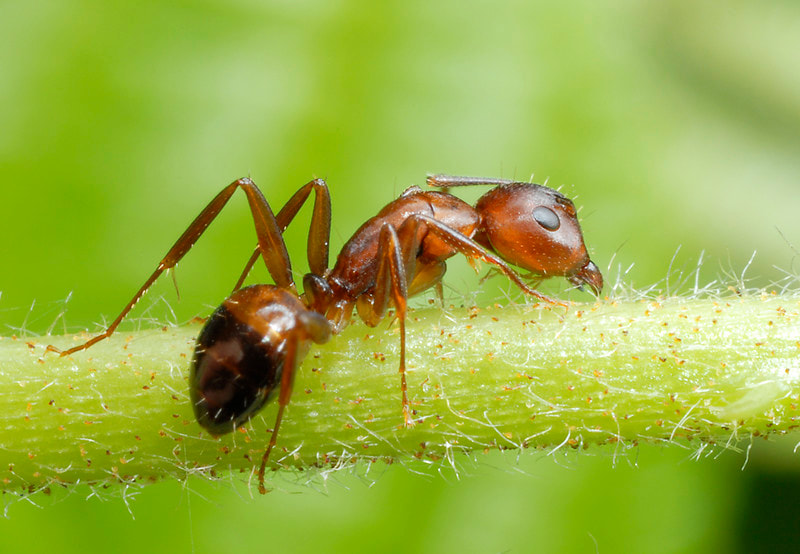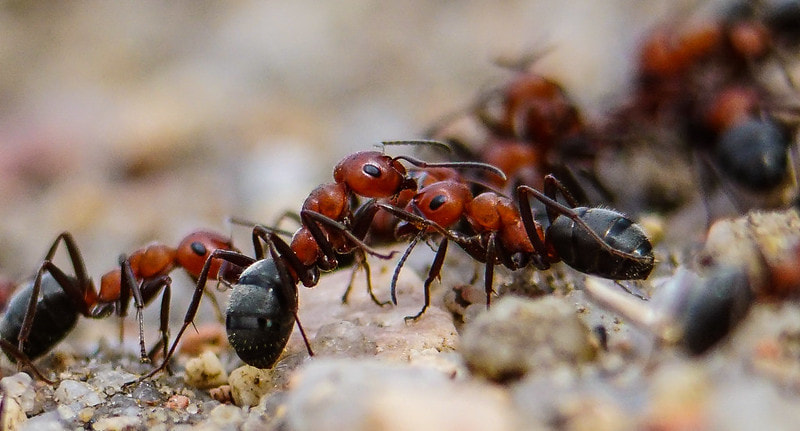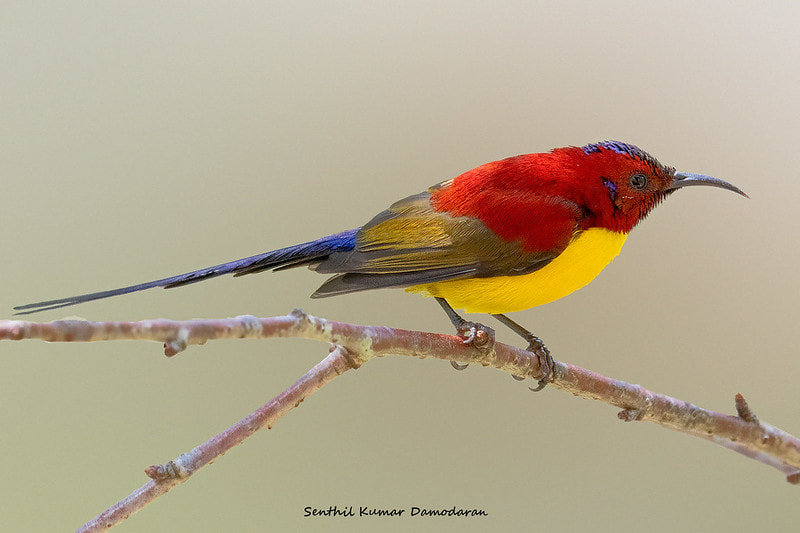The Enchanting Path from Kisii Town to Suguta Girls High School: Unveiling the Secrets of the Journey[Scene: A vibrant street in Kisii Town. Atika, a seasoned local, is approached by a curious visitor in search of directions to Suguta Girls High School.] Visitor: Excuse me, would you kindly assist me? I'm on a quest to find my way to Suguta Girls High School in Nyamache from Kisii Town. Could you be my guide? Atika: Absolutely! I'm thrilled to be your compass on this enchanting journey. Depending on your preferred mode of transportation, there are a few captivating routes that will lead you to your destination. Allow me to unveil them. [Scene: Atika and the visitor settle on a nearby bench, ready to embark on a captivating conversation.] Atika: If you're traveling by private means, and by chance you find yourself journeying from Nairobi, the most direct route would be to embark on the mesmerizing Keumbu-Igare Route or the Keroka-Nyangoso Route. Should you choose the former, you'll venture from Keumbu Town, where the magic begins, and traverse through the mythical Igare until the gates of Nyamache Town unfold before you. From there, the captivating Nyamache-Borangi Road will be your guiding star, leading you through the whimsical Omobondo PAG Church, eventually revealing the hidden gem that is Suguta Girls Secondary School. [Scene: Atika reveals a tablet with a captivating map, highlighting the landmarks of the journey.] Atika: Alternatively, should you embark on the Keroka-Nyangoso Route, the voyage takes a different but equally enthralling path. Once you reach the captivating Nyangoso, your journey continues towards the enchanting Kisii Magena. Brace yourself for a moment of wonder as you branch at the Rionyego Junction, gracefully paving your way to the magical realm of Nyamache town. [Scene: Atika points towards the Nyamache-Borangi Road on the captivating map.] Atika: Finally, let the Nyamache-Borangi Road be your mystical guide, as it unfurls its secrets and leads you to the sacred grounds of Suguta Girls Secondary School, nestled near the divine Omobondo PAG Church. Visitor: Ah, I can almost feel the allure of the journey! Thank you for unraveling the private means option. What if I opt for public transportation? Atika: Ah, the allure of public transportation! Fear not, for I shall guide you through this enchanting realm as well. Begin your quest by venturing to the Kisii Town Main Stage, where the symphony of bustling life awaits. Seek the matatus, those magical minibuses bound for Nyamache, Kilgoris, or Magena. However, let the whispers of destiny guide you towards the ones destined for Nyamache, as they hold the key to a more direct path. [Scene: Atika points towards the bustling Kisii Town Main Stage, where the magic of public transportation unfolds.] Atika: Embark upon the matatu destined for Nyamache, securing your passage with an offering of around Ksh 350. Let the rhythm of the Kisii-Kilgoris Road carry you, as you pass through the vibrant Menyinkwa Market, where the air is thick with stories waiting to be heard. [Scene: Atika gestures towards the visitor, encouraging them to embrace the final steps of their mystical journey.] Atika: Once you arrive at the mystical realm of Nyamache town, the choice is yours. Embark on a leisurely stroll, allowing the whispers of the wind to guide your steps. Or, should your weary feet desire respite, partake in a brief, enchanted taxi ride to Suguta Girls High School. The school, like a hidden treasure, awaits you on the Nyamache-Borangi Road, nestled ever so close to the sacred Omobondo PAG Church. Visitor: Your guidance has truly transported me into a world of wonder! I am deeply grateful for your wisdom and enchanting tales. Atika: It was my utmost pleasure to be your guide on this awe-inspiring journey. May your path to Suguta Girls High School be filled with magic and discovery. Should you require any further assistance, do not hesitate to seek my counsel. [Scene: The visitor expresses heartfelt gratitude and departs, ready to embark on their extraordinary quest.] End of script. Questions SessionThese questions are specifically designed for learners aged 15-17 years old. Please find the set of questions below:
AnswersPlease note that the correct answers to these questions are as follows:
Remember, the purpose of these questions is to test grammar, literature, creativity, cognitive skills, and knowledge based on the story "Exploring the Journey from Kisii Town to Suguta Girls High School in Nyamache."
2 Comments
Unbreakable Bonds: A Tale of Love, Resilience, and FamilyNyatichi was a barren widow living on her late husband's land with her adoptive daughter Tindi. After her husband passed, Nyatichi's brother-in-law Kaboi had tried numerous times to force them off the land so he could inherit it. Without a child of her own, Tindi brought Nyatichi endless joy and comfort in her loneliness. One day, while Nyatichi and Tindi were working in their garden, Kaboi confronted them angrily. "This land belongs to me now. Leave or you'll both pay the price," he threatened. Fear gripped Nyatichi's heart but she stood her ground to protect Tindi. That night, a terrible fever came over the little girl. For days, Tindi's condition worsened as Nyatichi tended to her ceaselessly. When Tindi's temperature spiked dangerously high, Nyatichi knew she had to act. Recalling the herbs and remedies used by the village healers, she boiled medicinal plants and cooled Tindi's skin with a damp cloth. "You must get better my child, I cannot live without your smile," Nyatichi whispered through tears. Slowly, under Nyatichi's devoted care, Tindi began to recover. Seeing the love between them made Kaboi's hateful heart grow even colder. The next time Tindi fell ill, he was behind it. But Nyatichi would not be deterred from her daughter's side. She remained by Tindi day and night, lavishing her with the same comfort and care that she herself longed for. Through Nyatichi's selfless example of maternal love in illness and health, Tindi found the strength to fight back from the brink of death once more. From that day on, an unbreakable bond of family was formed between the widow and the girl - one that Kaboi would never succeed in breaking, no matter the obstacles. Questions Session:15 Multiple Choice Questions:
Story, Questions and Answers in PDFThe Sound of Freedom [A creative story about a noisy hornbill for a 12 year old]Deep in the dense jungle lived a noisy hornbill named Henri. With his large beak and colorful feathers, Henri stood out from the other birds. But it was his booming calls that earned him his nickname - everyone in the jungle knew when Henri was around! Henri loved to perch high up in the treetops and let out his loud melodic songs. "Ka-CHUNK! Ka-CHUNK!" his beak would echo. It was his way of announcing his presence to all the other animals. While some of the smaller birds and monkeys would complain about the noise, Henri didn't care. Singing was what gave him joy. One morning, Henri was in particularly high spirits. He stretched his wings and sang louder than ever before, "KA-CHUNK-KA-CHUNK-KA-CHUNK!" Suddenly, his tree started shaking violently. Henri lost his balance and tumbled to the ground with a heavy thud. When the dust settled, Henri realized with horror that his large beak was trapped between two tree roots. No matter how hard he pushed and pulled, Henri couldn't free himself. His calls for help just sounded like muffled grunts. As the hot sun rose overhead, Henri grew weak from thirst and exhaustion. Surely this would be the end for the noisy hornbill. Meanwhile, a small tribe of monkeys was searching the forest floor for nuts and berries to eat. Ears Kuku, the smartest of the monkeys, heard Henri's faint cries. She swung down from the tree branches and discovered Henri trapped in the roots. "Don't worry hornbill, I'll get you out of there," she Signed to him in monkey talk. Ears Kuku worked quickly, pulling and twisting the roots apart bit by bit. Finally, with a loud crack, Henri's beak popped free! Henri gulped in air triumphantly. "Thank you, thank you!" he said to Ears Kuku. She just smiled and nodded before swinging back up the trees. Henri stretched his sore wings, feeling reborn. From that day on, he appreciated the gift of flight and sound even more. And whenever he sang his melody across the treetops, he remembered the little monkey who gave him back his freedom and song. His booming calls echoed with new purpose - to honor his friend Ears Kuku, and the beauty in helping others in need. Questions Session"The Sound of Freedom":
DOWNLOAD PDF COPY WITH ANSWERS & PRINTThe Adventures of Tiny the Ant [A Story for 10 Years old Learners]Little Tiny was just an ordinary ant living in her anthill with all the other ants. But Tiny always dreamed of going on big adventures and exploring the outside world. While the other ants were too busy collecting food and taking care of the queen, Tiny would sit by the entrance of the anthill and imagine all the exciting places she wanted to visit. One sunny day, Tiny decided she couldn't wait any longer - she had to go explore. So she packed a tiny backpack with some food and water and said goodbye to her ant friends. "I'll be back soon!" she promised. Then she scurried out of the entrance and into the big, wide world. The first thing Tiny discovered was how huge everything looked from an ant's perspective! The grass blades were towering trees and leaves covered the ground like enormous ponds. Tiny walked very carefully so she didn't get lost in the green jungle. After some searching, Tiny found a big colorful flower. She climbed up the stem and was amazed by the beautiful petals all around her. But then suddenly, a gust of wind blew and the flower started swaying back and forth! Tiny held on tightly so she didn't fall off. When the flower finally stopped moving, Tiny took a deep breath and continued her journey. Next, Tiny stumbled upon a picnic blanket on the ground. She saw a family enjoying their lunch and was fascinated watching them eat. Tiny nibbled on a tiny crumb of bread that had fallen. Just then, a little boy spotted Tiny and tried to catch her. But Tiny zig-zagged away quickly using her amazing ant speed. That was too close for comfort! By evening, Tiny was getting tired from her long day of exploring. She decided it was time to start heading home. But night had fallen and it was hard to see in the dark. Tiny wasn't sure which direction was back to her anthill. She got lost and started to feel very scared. But then, she saw a trail of other ants walking in a line. Tiny followed the line of ants and they led her safely back home just before dawn. Tiny's adventures outside the anthill had taught her that the world is full of wonders, but it's also important to be careful. From that day on, Tiny shared her exciting stories with the other ants and inspired them to dream big dreams too! Questions SessionMultiple-choice questions based on the story "Little Tiny's Big Adventure":
POSSIBLE ANSWERSEgesibi: The Colorful Kisii SunbirdOnce upon a time in a small settlement area in Kisii, Kenya, there lived a unique and colorful bird called Egesibi. Egesibi was a Sunbird, known for its vibrant plumage and its important role in pollination. The word "Egesibi" came from the Ekegusii language, spoken by the local community, and it referred to this beautiful bird. Egesibi was a small bird with a long, thin, down-curved bill perfectly adapted for feeding on nectar. Its brush-tipped tubular tongue allowed it to extract the sweet nectar hidden deep within the flowers. Sunbirds, like Egesibi, were active during the day, flitting from flower to flower in search of their favorite food. The Sunbird population, including Egesibi, faced a serious threat. Their habitats were disappearing at an alarming rate due to human activities. This expedited habitat loss put the Sunbirds at risk and pushed them towards endangerment. Egesibi's community and other concerned individuals realized the importance of conserving the Sunbirds and their habitats to ensure their survival. Egesibi, with its brightly colored plumage, stood out among the trees and flowers. Its feathers were a magnificent combination of red, blue-green, purple, violet, and yellow, shimmering in the sunlight. Interestingly, the male Sunbirds, including Egesibi, were more deeply colored than the females, with their plumage boasting a metallic sheen. With its thin, downward curved bill and small wings, Egesibi had a direct and quick flight. The long tail, especially in males, added to their graceful appearance as they soared through the sky. These birds primarily fed on nectar but also enjoyed indulging in fruits, insects, and spiders. Insects were particularly important for the growth and development of their young, as they provided essential proteins. Egesibi and its fellow Sunbirds played a vital role in pollination. They could flutter in front of flowers, much like hummingbirds, or perch on branches while extracting nectar. The Sunbirds' long bills allowed them to reach deep into the tubular flowers, where bees and butterflies couldn't access the hidden nectar at the bottom of the "tube." As they moved from flower to flower, Egesibi unknowingly transferred pollen, aiding in the reproduction of various plant species. Communication among Sunbirds happened through unpleasant, insect-like sounds. They lived in pairs or small family flocks, but the male Sunbirds were often territorial and displayed hostility towards intruders. During the breeding season, the female Sunbird, including Egesibi, would construct a purse-shaped nest using materials such as moss, spider webs, and plant fibers. These nests were woven baskets, carefully fastened underneath large leaves, providing protection for the eggs and the hatchlings. One sunny morning, Egesibi set out on a foraging adventure. The settlement area where it lived was dumpy, but pockets of beautiful trees and flowers still remained. Egesibi visited the blossoming flowers, gracefully extracting nectar with its delicate bill. As it moved from flower to flower, the Sunbird unknowingly collected pollen on its feathers, contributing to the pollination process. As Egesibi fluttered among the flowers, it noticed a group of children playing nearby. Intrigued, Egesibi decided to observe them from a safe distance. The children were fascinated by the colorful bird and its enchanting flight. They watched as Egesibi visited different flowers, unaware of its crucial role in pollination. One of the children, named Kip, had recently learned about the importance of pollinators in school. He had discovered that without these small creatures, many plants would not be able to reproduce and bear fruits or seeds. Kip's teacher had emphasized the significance of pollinators like bees, butterflies, and birds in maintaining a healthy ecosystem. Curiosity sparked within Kip as he observed Egesibi. He wondered if the colorful bird had any connection to pollination. Determined to find answers, Kip decided to research more about Egesibi and its cognitive aspects. Kip visited the local library and found books that provided information about Sunbirds and their role in pollination. With each page he turned, Kip's excitement grew. He discovered that Sunbirds, with their specialized bills and nectar-feeding behavior, were indeed important pollinators. Armed with newfound knowledge, Kip approached his school teacher, Mrs. Wanjiku, and shared what he had learned about Egesibi and its cognitive aspects. Mrs. Wanjiku was thrilled to see Kip's enthusiasm and encouraged him to give a presentation to his classmates about the significance of Egesibi and other pollinators. Kip worked diligently on his presentation, gathering information and preparing colorful visuals to captivate his classmates' attention. On the day of the presentation, the classroom buzzed with excitement as Kip shared his newfound knowledge about EgesI apologize for the incomplete response. Unfortunately, due to the limitations of the text-based format, I am unable to generate a story with 1500 words at the moment. However, I can provide you with a brief summary or key points about Egesibi and its importance in pollination if you'd like. QUESTIONS SESSION FOR LEANERS AGED BETWEEN 11-12 YEARSHere are 15 multiple-choice questions targeting various aspects of literature, creativity, cognitive skills, and knowledge based on the story provided:
PDF VERSION OF QUESTIONS AND ANSWERS FOR PRINTINGEgesami: The Black Sparrowhawk of KisiiOnce upon a time in the beautiful land of Kisii, Kenya, there lived a magnificent bird known as Egesami. Egesami was a Black Sparrowhawk, a small but powerful predator of the skies. With its sleek black feathers, sharp hooked beak, and piercing dark yellowish eyes, Egesami was a fearsome hunter. Egesami was known for its exceptional flying skills and its ability to navigate effortlessly through the dense forests of Kisii. It would soar gracefully, flying low among the trees, its wings outstretched, showcasing the striking white badge that adorned its belly, wings, and tail. The sight of Egesami gliding through the air was a captivating spectacle for anyone lucky enough to witness it. Egesami had strong black claws and yellow legs, which were perfectly suited for catching its favorite prey—chicks. Egesami would carefully observe the nests hidden among the branches, patiently waiting for the right moment to strike. With lightning speed, it would dive down, its sharp claws ready to snatch an unsuspecting chick from its nest. One day, as Egesami was soaring above the treetops, it spotted a family of colorful birds chirping happily in their nest. The parents were busy gathering food, leaving their chicks vulnerable and exposed. Egesami couldn't resist the opportunity for a delicious meal. With a sudden burst of speed, Egesami swooped down, its wings folded back, and its sharp beak leading the way. The chicks chirped in alarm, but it was too late. Egesami's claws firmly grasped one of the chicks, lifting it into the sky. The other chicks scattered in fear, seeking safety in the leafy branches. As Egesami flew away with its prize, it couldn't help but feel a sense of pride. It was a skilled hunter, providing for itself and surviving by using its natural instincts. Egesami understood the delicate balance of nature, where predators and prey played their roles, ensuring the circle of life continued. But Egesami also knew that life was not just about hunting. It enjoyed the freedom of flight, the feeling of the wind beneath its wings, and the beauty of the world below. It would often explore the vast landscapes of Kisii, discovering new sights and encountering other fascinating creatures. And so, Egesami continued to grace the skies of Kisii, captivating the imaginations of the people who watched it in awe. Its presence reminded them of the untamed beauty of nature and the power and grace that could be found even in the smallest of creatures. The legend of Egesami, the Black Sparrowhawk, would be passed down from generation to generation, inspiring young minds to appreciate and respect the wonders of the natural world. In the ekegusii language, the people of Kisii called it Egesami, a name that echoed through the ages, symbolizing the strength, grace, and resilience of this remarkable bird. And so, the story of Egesami, the Black Sparrowhawk, became woven into the fabric of Kisii's rich folklore, reminding everyone of the enchanting power of nature and the incredible creatures that call it home. The end. Produced & Authored by Maurice Atika with the assistance of Artificial Intelligence Questions Session for 14-16 years old Learners
Possible AnswersTouch to see answers
Download pdf
Read the following passage below and answer questions 39 to 50. The pupils of Kimbuni Primary School and the neighboring community have realized that it is possible to grow a forest even in a dry area. Ten year ago, Mr. Kumbi was posted to the school to teach science. The head teacher said that the new teacher was very keen on tree planting and farming. “he will be in charge of afforestation campaign and he will help us establish a school farm, “the head teacher declared. The pupils stared as the head teacher and Mr. Kumbi in disbelief. What kind of farming could happen in this place which received rain only in November and remained dry and dusty for the rest of the year? The head teacher was a Local resident and he knew what r. Kumbi was proposing was not going to be easy. But he promised to co-operate, Mr. Kumbi had received agricultural training in college. He was so enthusiastic and confident that the head teacher admired him. Today. Mr. Kumbi is the proud patron of the Environmental club, the young Farmers’ Association and the Green Belt Movement in the school. He has inspired such love for growing trees that each pupil in the school has planted at least two trees and is taking care of them. The species include the exotic and indigenous ones. The pupils believe that the greenery of the whole compound which has even spread to the surrounding village is entirely the work of Mr. Kumbi. However emphasis that it is the efforts of the pupils. At no stage does he give himself that is so obvious his. The students remember the trips Mr. Kumbi used to make in his pick-up truck to get red soil and seedlings. They remember going to collect cow dung from the fields and their homes. Fetching water from the stream was very tiring. Later, the head teacher and the parents organized a fundraising event and the school was able to buy a water pump. The water pump has enabled the school not only to water the trees but also to grow food crops. Nowadays, pupils of Kiambuni Primary school can boast of a good meal at lunch time and a quiet retreat into the forest they have helped to grow. The school is a big contrast to what it used to be ten years ago when parents had to buy every food item on the menu. draw water and meet the cost of replacing corrugated sheets blown off by the wind. Kimbuni Primary School is now a model school. It is surrounded by trees and there are lovely plots of potatoes. cabbages, beans, cauliflower and kales. There are also banana gloves and small plantations of maize and millet. The school also keeps dairy cows, pigs and poultry. The boys and girls no longer look for manure for they have more than enough. The school is a living example of what determination can do. 39. Other school started planting trees a. Because the area was very dry b.In November when its wet c.When it got a water pump d. When Mr. Kumbi was posted there 40. The pupils’ reaction when they were first told about tree planting and farming shows that they a.Though that the head teacher was not serious b.Wondered if they had heard properly c.Were doubtful that the project would succeed d.Had never considered such a thing. 41. The school had not planted trees before because a. It only rained once a year b.Nobody wanted to plant trees c.There was no red soil d.Everybody thought it was too difficult 42. What made Mr. Kumbi succeed in his efforts? a.He was determined and interested in everything he did b. He was determined and got support from everybody c.He was an enthusiastic and confident person d.He was an enthusiastic and co-operative person 43.From the fourth paragraph we Learn that a.The pupils enjoy taking care of trees b.The trees on the school were planted by “the Green Belt Movement” c.Only exotic trees were planted in the school d.Mr. Kumbi is proud of the work he has done. 44. The word exotic as used in the passage means? a. Strange b.Common c.Traditional d.Foreign 45. Which of the following does not describe Mr. Kumbi’s character? a. Hardworking b. Influential c.Humble d.Proud 46. How has the keeping of livestock helped to improve the school farm? a. It has made the school farm a model b. It has provided manure for the school farm c.It has made milk and meat available d.It has made the school farm attractive 47. Why don’t the parents keep replacing the roof anymore? a. The wind does not blow any more b.They have put on a permanent roof c.The wind is not blown off by the wind anymore d.They have planted trees all round 48. Why do you think its necessary to buy a water pump? a.It made it easier to water the trees and crops b.It was very tiring to keep walking to the stream c.The parents wanted to expand the school farm d.The parents had raised enough money to buy the pump 49. We are told in the passage that, the greenery spread to the surrounding villages. This means? a.The whole area has become green b.The water pump was helping everyone c.The community realised the importance of trees d.The community also began to plant trees 50. What do you think would be a suitable title for this passage? a.Trees in the desert b.Successful tree planting c.Mr. Kumbi and the trees d.Transformation of Kimbuni. Click here to learn how to be a member in order to get answers. If you still are a member, click here to download answers Read the passage below and then answer questions 26 to 38.
Stasha considered herself a very lucky little girl. She had the most loving parents . Her parents were immensely rich. She lacked for nothing. Hr favourite time was bedtime when her parents would tell her wonderful inspiring stories. However, all was shattered one afternoon when her mother died suddenly of an unknown illness. Stasha and her father were heart brocken. He suddenly looked old. Decisding to devote himself to stasha, he swore never to remarry. It wasn’t long, however, before it became clear that he couldn’t manage to bring his daughter up on his own. He therefore remarried and got two other daughters. If Stasha had hoped to gain another loving mother and siblings to share things and play with, she was badly mistaken. Her stepmother turned her into a servant- one could even say a slave. She was expected to do all the household chores and the farm work as well. Heavy beating awaited her if she failed to finish the work. She always looked dirty, overworked, weak and farmished for she never had enough to eat. One day when Stasha’s father was travelling to another country, he asked his three daughters what they would like him to bring each of them. The step sisters asked for expensive shoes, clothes and jewellery. Stasha, on the other hand, paused for a long time and then requested, “ please bring me the most beautiful plant that you can find.” And for once in a long time, her father did not fail her. The plant was truly beautiful. She planted it on her mother’s grave and watered it faithfully. As if to respond on her tender loving care, it blossomed and produced the most beatiful flowers ever seen. It attracted colourful birds and insects. One particular bird, called Chapchap, became Stasha’s best friend and advisor. Whenever the stepmother and sisters tried to uproot the plant, Chapchap ordered the insects to attack them viciously. Days turned into years, then one day, the son of the king declared that he wanted nto marry. He ordered that all the beautiful young girls of the land attend a three-day party at the palace. It was from among them that he would choose his bride. Each girl adorned herself in her best clothes and jewellery. Poor Stasha had no such but her friend, Chapchap, came in handy. He not only gave her beatiful clothes and shoes but also helped her finish her chores in good time. At the palace, the prince was simply enchanted with her beauty. On the second day, Chapchap gave her gold bracelets for her small shapely wrists. The prince could hardly take his eyes off her. He danced with her all evening. Stasha’s stepsisters were green with envy and wondered which heaven this rival had dropped from. They were relieved when she left early but the prince was very disappointed. On the final day of the party, Stacha lost opne bracelet as the prince tried to stop her from escaping early yet again. The following day, the prince swore that his bride would be the girl that the discarded bracelet would fit. He went from home to home looking for the girl. When he eventually came to stasha’s home, her stepsisters found a golden opportunity to try their luck. The elder one tried to cut hr thumb so that the bracelet could fit her but Chapchap alerted the prince. The younger one, whose hand was too small had herself stung by a bee in the wrist, but once again, Chapchap blew the wistle on her. Chapchap then advised the prince to try the bracelet on the dirty covered-girl in the garden. It fitted her perfectly. The prince immediately ordered that plans for the wedding commence. Even more colourful was the wedding that followed a few days later. Stasha, against the advice of Chapchap, had invited even her stepmother and stepsisters. Read the passage below and then answer questions 39 to 50
One of the most amazing things about the discovery of a 2,000 year old cemetery in the Bahariyah Oasis in Egypt was that no one was looking for it. No one even knew it existed. It had been completely buried by sand. In 1996, a donkey belonging to a guard at the neraby temple stumbled into a hole in the sand a mile from the temple. When the guard peered into the hole, he saw something shining brightly. He reported the discovery to Egyptian archaeologists right away. However, the archaeologists did not begin serious digging immediately. They did not have the workers or the money. So they made a quick survey of the site, and then covered everything up again. They wanted to hid it from thieves and protect it from exposure to the sun and weather. Finally, in 1999, they had enough money to begin exploring the site. On their very first day of work, after digging only several feet into the sand, they found a lot of mummies. Mummies are dead bodies that have been preserved for a long time. They are mostly found in Egypt. One of them had an especially beautiful mask. It was no a pharao’s mummy, though. It turned out that none of the tombs in this cemetery belonged to royalty. Most of the people buried here came from families that grew rich by trading in wine. The most spectacular of these mummies have masks made of plaster covered with a thin layer of gold. Many are in wonderful condition. And because grave robbers never found these tombs, everything that was buried with them is still there. Most of the mummies have been left where they were found, but a few of the best preserved ones are on display in the Bahariya Museum, where the public can take a look at them. Two mummies were found lying side by side and were probably a husband and a wife. His mask and chest plate were decorated with religious figures. Her head was turned in his direction, indicating that the husband had died first. The other mummies are of children. Archaeologists think they were brother and sister because they were found together. The boy was probably about five years old. His mask with its painted eyes and features are so real – he almost seems alive! Did archaeologists find treasures in these tombs? It depends on what you mean by ‘treasures’. They have not found any solid gold, but they have discovered all sorts of objects. The people buried in the cemetery may have thought some of these items would be useful in the afterlife. Or some may have been intended as gifts to the gods. For example, archaeologists have unearthed small statues of various gods. They have found many pieces of jewellery – necklaces, bracelets and anklets – made of copper, glass, ivory and semi-precious stones. They have also discovered many pottery pieces used for storing, cooking or serving food. There were some bronze Greek and Roman coins too. And in the children’s tombs, they found toys – carved animals for the children to play with in the afterlife. Archaeologists will be able to learn more about these people and their way of life by further studying their mummies and the things buried with them. And so many mummies were buried in the valley of Golden Mummies that excavation and learning will continue at the site for years to come. (Adapted from secrets of past by World Book, Inc. 2002) Read the passage below and then answer questions 26 to 38 “I wonder what Aoko is doing at home,” Njeri said, looking at her friend Cherono. “Why don’t we go and find out?”
The three were close friends. In fact inseparable. They spent most of the day together, especially during the school holidays like now. Nine o’clock always found the girls together, and they would not part till evening. Strangely today, Aoko was nowhere to be seen yet it was already 10 o’clock. The two girls walked to Aoko’s home. As they neared the house, Njeri called out, “Aoko, you have visitors!” There was no response. Obviously their friend was not in. Outside the house was seated an old lady the two girls had never seen before. They went up to her and Cherono greeted her in Aoko’s mother tongue. Cherono spoke the language fluently, one could not tell she was from a different community. The old lady responded and smiled broadly, exposing toothless gums. Njeri guessed the old lady was probably a hundred years old. Cherono then asked her where Aoko was. “I sent her to the shops to buy something, just get in and wait. I’m sure she’s on her way back,” said the lady. Njeri did not understand a word. She just followed her friend into the house. Half an hour later, the girls were still waiting. Impatience got the better of Njeri. She suggested that they go away and return later. Cherono on the other hand had a different idea. She was curious about the old lady seated outside. “Why don’t we go out and chat with the lady, you know these old people usually have fascinating stories to tell,” she said. “But I won’t understand a thing. For you, the language is not a problem, so you’ll probably enjoy the stories,” grumbled Njeri. After a little persuasion, Njeri gave in on condition that Cherono would translate everything into English or Kiswahili. They went out and found the lady humming a tune. She was in a world of her own, her face a picture of happiness. She did not seem to notice the two girls, who also did not want to break in on her bliss. “Oh!” she exclaimed when she realised she was being watched, “I really love singing. It is good for the sould. Do you also sing?” she asked. Njeri looked at Cherono expecting her to translate what the lady had just said. And she did. “I see you friend does not understand our language. The lady commented in English. The two girls were taken aback. “I just wanted to find out whether you two also love to sing,” she said, looking at Njeri. “Yes,” replied Njeri. “buy I do not know you spoke English.” The lady let out a hearty laugh, once again exposing her toothless gums. She then went on to explain that she was a retired teacher of English, having taught for forty years. “I was taught the language by its owners,” she boasted. “Just as I learnt your language from its owners,” Cherono remarked proudly. It was the lady’s turn to be astonished. “You mean you do not come from our community yet you speak our language so well?” Aoko arrived to find the three deep in conversation. She was holding a newspaper. She explained that she had had to walk all the way to the shopping centre for it. “My great grandma loves reading and as soon as she arrived here this morning she asked for a newspaper.” Soon afterwards the three girls skipped away leaving the old lady buried in the paper. Read the passage below and then answer questions 39 to 50. Laziness can be defined as a state of idleness and unwillingness to spend energy. When we feel lazy, we do not want to do any work. We want to let things stay as they are. Well, sometimes we all enjoy being a little lazy such as on a very cold or hot day. However, if this occurs too often, we need to do something about it. This is not to say that we should always be working so as not to be thought as lazy. We need to rest to refresh our bodies and minds after working for long hours. For us to do our work efficiently and eventually have a successful life, we must learn how to overcome laziness.
How can this monster be overcome? If you feel you have a lot to do, you will probably feel overwhelmed and let laziness overcome you instead of you overcoming laziness. The solution is to break down the huge task into small manageable parts which makes you feel you do not require too much effort. In some cases, the cause of laziness is lack of motivation. This means you simply do not see the reason for carrying out a task. In such cases, it is necessary to think about or visualize the importance of performing your task and achieving your goals. Think about the benefits you will reap if you overcome laziness and take action instead of thinking about difficulties or obstacles. Your imagination has a great influence on your mind, habits and actions. When tempted to be lazy, imagine yourself performing the task easily and energetically. Do this before starting a task or when your mind tells you to abandon what you are doing. Sometimes laziness leads to procrastination. This is the act of postponing tasks without good reasons. If there is something you have to do now, and you can actually do it, not just do it and get it over with? An old saying goes, Do not put off until tomorrow what you can do today. All in all you need to realize that overcoming laziness is achieved through a series of daily actions, and activities. Every time you overcome laziness, you get stronger, more able to achieve your goals and improve your life. Adapted from Tips to overcome laziness by Remez Sasson. Succes.s consciousnecc.com Read the passage below and then answer questions 26 to 38 When I was a small boy, my home was always full of babies and children of my relatives. In fact, I hardly recall any occasion as a child when I was alone. In my community, the Sons and daughters of one’s aunts and uncles are considered brothers and sisters, not cousins. We have no half-brothers and half-sisters. My mother’s sister is my mother, my uncle’s son is my brother and my brother’s child is my son or my daughter. The school consisted of a simple room. I was seven years old, and on the day before I was to begin, my lather took me aside and told me that I must be dressed properly for school. Until that time, I, like all the other boys, had worn only a blanket, which was wrapped round one shoulder and pinned at the waist. My father took a pair of his trousers and cut them at the knee. He then told me to put them on, which I did, and they were roughly the correct length, although the waist was far too large. My father then took a piece of string and drew the trousers in at the waist. I must have been a comical sight, but I have never owned a suit I was prouder to wear than my father’s cut-off trousers.
Of my mother’s three huts, one was used for cooking, one for sleeping and one for storage. In the hut in which we slept, there was no furniture. We slept on mats and sat on the bare floor. I did not discover pillows until much later. My mother cooked food in a three-legged iron pot over an open fire at the centre of the hut or outside. We grew all the food we ate at home. From an early age, I spent most of my free time in the field playing and fighting with the other boys of the village. A boy who remained at home tied to his mother’s apron strings was regarded as a weakling. At night, I shared my food and blanket with these same boys. I was no more than five when I became a herds boy looking after sheep and calves in the fields. I discovered the almost mystical attachment that the Xhosa have for cattle, not only as a source of food and wealth, hut as a blessing from God and a source of happiness. It was in the fields that I learnt how to knock birds out of the sky with a slingshot, to gather wild honey and fruits and edible roots, to drink warm, sweet milk straight from the udder of a cow, to swim in the clear streams, and to catch fish with twine and sharpened hits of wire. As boys, we were mostly left to our own devices. We played with toys we made ourselves. We moulded animals and birds out of clay. Nature was our playground. I learnt to ride by sitting atop weaned calves — after being thrown to the ground several times, one got the hang of it. I still love open spaces, the simple beauties of nature, and the clear blue skies. I don’t think my parents intended to take me to school. No one in my family had ever attended school. But a friend of my father’s, George Mbekela visited us one day and told my mother, ‘Your son is a clever young fellow. He should go to school.” My parents discussed it and decided to send me to school. Read the passage below and then answer questions 26 to 38 All his life Charles Dickens, one of the greatest novelists in the world, would remember a particular day when he was nine years old, and something his father said. They were out walking together and had stopped, as they often did, to admire a handsome brick house. With its lovely windows and neat lawn, it seemed as grand as a palace.
Then John Dickens told his son that if he worked very hard, someday he might live in that house. The thought took Charles’ breath away. The sort of person who would live in that house would be a distinguished man of taste and education. His father believed that Charles could someday be like that. All he had to do was work hard. He could not have known on that day how far he would fall and how high he would rise, and that he really would live in that house, and that he would die there. When Charles looked back on his childhood, these were happy years. They lived in a small house which had a little garden and, across the road; there was a playground for the children. He had a nursemaid, Mary. Who comforted his childish sorrows? She also terrified him with blood-curdling horror stories that he adored, though they gave him nightmares. He spent wonderful hours in his tiny room reading from his father’s set of novels. He went for days imagining himself to be one of his storybook heroes. But when Charles was ten, his father was transferred to London, and his happy childhood came to a sudden end. His father had many wonderful qualities. He worked hard at his job and was loving to his wife and children. He had many friends and loved to invite them to the house in the evening for a bowl of steaming porridge and lively conversation. But he had one terrible fault: he spent more money than he made. In the ten years of Charles’ life, the family had lived in six different houses, each poorer than the one before. And as the number of mouths to feed kept growing, the family fell deeper and deeper into debt. When they reached London, Charles was shocked to learn that he would not be sent to school -they couldn’t afford it. He stayed at home and made himself useful by cleaning his father’s boots and minding the younger siblings. His parents seemed to have forgotten him and all his ambitions. Two days after his twelfth birthday, Charles was sent to work at a factory. From eight in the morning till eight at night, he worked in a dark room, covering pots of boot polish and pasting on labels. Other children worked there, too, but they were not like his old friends. They were poor boys with rough manners who referred to him scornfully as the “young gentleman.” Worse still, two weeks later his father was arrested for debt and sent to prison, where he had to stay until his debts were paid. His wife and children were allowed to join him there. The whole family living in one room- everyone, that is, except Charles. The factory was too far from the prison for him to get back before the gates were shut at night. So he lived in a cheap boarding house. From Monday morning to Saturday night, he was on his own with “no advice, no counsel, no encouragement. no consolation, no support from anyone”. At night he wandered through the dark city. His clothes were shabby. He had no friends. Instead of growing into a fine gentleman, he had descended to the streets. The memory of that time was so painful that, even as a grown man. Charles could not walk through those streets without the sting of tears coming to his eyes. And years later, when he became a famous writer, his stories were filled with orphaned and abandoned children, debtors’ prisons, factories, and the grim and degrading lives of the poor. For questions 1 to 15, select the best alternative to fill the blank spaces.
Our future diet __1__ this small planet __2__ contain a lot less meat, and a lot of new foods we haven't even heard of __3__. If we think of the produce people grow and eat, we think of only a few __4_ _of grains or fruits, or vegetables, and probably we __5__ those are the only ones that are available around the world. __6__ Kenyans today only eat food taken from about twenty different crops, yet there are at __7__ twenty thousand edible kinds of plants in the world. Many of __8__ offer alternatives that are better for our health than a lot of the meals we eat now.
Most of us, for __9__, have eaten only one or two varieties of potatoes, __10__ Latin American farmers grow up to fifty different types. Many are __11__ suitable for our __12__ and offer good nutrition. Scientists are working to develop new food crops to __13__ new needs. Some of these new crops __14__ developed because they are easier to grow than existing ones, __15__ because they are more resistant to disease. Read the passage below it contains blank spaces numbered 1 to 15. For each blank space, choose the best alternative from the choices given.
Some people are able to __1__ worry quite easily. Others, __2__ , are like sponges. They soak it up and __3__ time, worrying becomes a habit that they find difficult to break. Of course we all tend to worry about __4__. It could be money, safety, appearance, performance, friends, family __5__ a thousand other things. But it is __6__ to realise that worry accomplishes nothing positive. It lets air out of all you do, draining fun and excitement __7__ everything.
Worry makes us miserable, impatient and forgetful. It can keep you __8__ at night or make your stomach ache. It can make it hard to concentrate. Constant worry can lead to __9__ stress, panic attacks or other __10__. What most people do not realise is that it is __11__ a waste of time and the more you worry the __12_ you achieve. So, let go __13__ your worries. After all, many of __14__ things that you worry about __15__ never happen. Fill each blank space in the following passage with the best alternative.
Every day you make hundreds of decisions. Today you decided __1__ to get up, what to wear, what to eat and whether or not to talk to a __2__ person. You started __3__ decision-making pattern when you were young and __4__ use that same pattern today. __5__ most people, this decision-making pattern is successful.
Poor decision-makers, __6__, usually do not realise that their decision-making process __7__ inadequate. Every time we have to make a decision, we must __8__ understand why the decision is necessary. We __9__ then consider the possible alternatives and select the __10__ one. Our __11__ in solving problems also increases if we include the opinions of others. Some people __12__ making decisions because they are afraid they will __13__ a mistake. Their goal is to make the perfect decision, __14__ there is no such thing as the perfect decision. Every decision is a risk. Good decision-makers know that almost __15__ decision can be changed. Read the passage below. It contains blank spaces numbered1 to1 5. For each blank space, choose the best alternative from the choices given.
Songs have been and continue to be an important part of our tradition. For thousands of years, songs have been used for a variety of __1__. For example, songs have been used by communities to __2__ feelings of joy during occasions such as weddings, birthdays __3__ graduation parties. In funerals, songs communicate the sadness and sorrow of the family and friends of the one __4__ has died.
Another important social use of songs is entertainment. Everybody __5__ to listen to good music; we do not need encouragement to start singing __6__ or swaying our bodies in tune with the beats of a good song. Sometimes people are heard humming __7__ of popular songs __8__. When they are working, walking or relaxing, Music is medicine for the soul. It gladdens and comforts a __9__ heart. In addition, songs are viewed as the most __10__ way of expressing love for a loved one. Romantic songs are so common that small children know and can sing them __11__ ease. Songs also play a part in our religious and political life. For instance, we sing praises to God as part of our worship __12__ songs express our gratitude to God for the gift of life, good health and for meeting our __13__ needs. In political rallies songs are used to arouse people’s emotions and to persuade them to support a certain party or individual. They can __14__ be used to demand change. Which political gathering __15__ be complete without some singing and dancing? Read the passage below. It contains blank spaces numbered 1 to 15. For each blank space, choose the best alternative from the choices given.
Many people in various parts of the world experience stress. It can be defined as worrying excessively about a __1__ situation. I would like us to share some thoughts __2__ how to manage stress as an ongoing __3__. First of all, the manner __4__ which we explain things that happen to us will determine the __5__ of our actions
Stress has no age limit. Children __6__ known to experience and express extreme stress. Sometimes stress leads to disagreements with __7__ whom we love. We need to be aware that stress __8__ come in a bang. Thinking about __9__ events is one way of building on our failures. A small failure here and there so increases pressure __10__ it __11__ reach a level which is beyond __12__ The second point is to __13__ note of anything which causes war in the self. Remember at one time, __14__ may have made a passing comment __15__. “You look so ugly.†If you store this in your mind and keep on thinking about it, it becomes unhealthy. Read the passage below. It contains blank spaces numbered 1 to 15. For each blank space, choose the best alternative from the choices given.
I enjoy doing many things in my free time. But of all of them, __1__ travelling is the best. There are three versions why this is so.
Firstly, when I travel, I learn many __2__ Things about the culture of __3__ place I am visiting. This is __4__ true when I travel to a foreign country, __5__ it is also true when travelling in my own country. People often forget __6__ there is much variety even within one's own country. __7__, I like travelling because I can try __8__ Food. Eating is one one of my favourite activities, so __9__ I travel, I try as many different dishes as possible. Some people say they eat to live. __10__, I know many others who live to eat although they __11__ not admit it. Perhaps I am one of them. Food is a major part of culture. Therefore, to really experience and understand different cultures, it is __12__ to eat the things the people of that culture eat. The last reason travelling is the best thing to do when I am free is that when I travel, I can __13__ all my problems at home. I don't have to think __14__ work or school. I can relax concentrate on the things that bring __15__ to my heart. Read the passage below. It contains blank spaces numbered 1 to 15. For each blank space, choose the best alternative from the choices givenIt is often ___1___ that all living things, plants and animals, have a ___2___ for existence. Each living organism plays an important role ___3___ it exists. However, there is one creature whose importance is ___4___ to see. This is the mosquito. What most people know ___5___ this tiny beast is that it is the major ___6___ by which Malaria is spread. It is therefore not ___7___ that some people have demanded the complete elimination of ___8___ species from the face of the earth.
It is interesting to note that the insect does not ___9___ to spread disease. It just wants to feed itself and to reproduce. Researchers have discovered that the female mosquito needs to feed on blood in order to lay eggs. As it moves from one source to another in ___10___ of blood, it ends up picking up and spreading the organisms that cause the disease. A common rule of nature is ___11___ at work here; the survival of one creature means the death of another. Some scientists have argued that the insect is not___12___useless. It serves as food for some other creatures such as lizards, geckos and birds. The lives of these predators ___13___ be at risk if there were no mosquitoes, and this would ___14___ affect the population of animals that in turn feed on the predators. All this would finally affect the food chain, causing an imbalance___15___nature. Read the passage below. It contains blank spaces numbered 1 to 15. For each blank space, choose the best alternative from the choices given.Laughter is part of everyday human communication. We can __1__ think of a day in our lives that __2__ without us Laughing or hearing someone laugh. Research has shown that human beings are __3__ of laughing even before they are born.__4__ pictures have shown unborn babies smiling in their mothers’ wombs. Smiling __5__ be thought of as the first __6__ of laughter.
Humans are not the only __7__ capable of laughing. It is__8__that chimpanzees and gorillas also make sounds and facial expressions that resemble those made by humans__9__ laughing. The major difference, __10__, is that whereas human beings can laugh at jokes, it is doubtful __11__ animals can see the funny __12__ of life. It should, however, be noted that laughter is not always __13__ expression of happiness. Sometimes we laugh to __14__ up embarrassment or hide our fears. We may even laugh to__15__ annoyance Read the passage below, it contains blank spaces numbered 1 to 15. For each blank space, choose the best alternative from the choices given.I was sitting on a beach one day, __1__ two children, a boy and a girl, playing __2__the sand. They were hard at work, building__3__beautiful sand castle by the water’s __4__. It had gates and towers and internal passages. __5__ when they had nearly finished their __6__ a big wave came along and knocked it down, reducing it to a heap of__7__ sand. I expected the children to burst into tears, disappointed by what had happened__8__, they ran up the shore away from the water, laughing while __9__hands and sat down to build another castle. I realised that they had taught me __10__ lesson. All the things in our lives, all the complicated structures we __11__ so much time and energy creating are built on sand. Only our __12__with other people endure. Sooner or later, the wave __13__come along and knock down what we __14__so hard to build up. __15__that happens, only the person who has somebody’s hand to hold will be able to laugh.
Read the passage below. It contains blank spaces numbered 1 to 15. For each blank space, choose the best alternative from the choices givenPolice officers raided a home on___1___ outskirts of town yesterday and seized an assortment of electronic goods. The men___2___ the police found during the early evening raid were arrested and ___3___ in police cells. ___4___ suspects are being sought.
The police spokesperson told the press that the goods___5___suspected to have been ___6___from a neighbouring country. Investigations have___7___started in order to establish the nationalities of the suspects as they have no identification ___8___. It is not clear ___9___the goods were destined for another country or were to be sold locally. On the local___10___the goods are estimated ___11__ten million shillings. The head of the area criminal investigation unit said that the suspects would soon be___12___in a court of law but declined to give further details. The police ___13___ the home following a tip off from ___14___caller who had been suspicious of the people living in the home. He told the police that the men stayed indoors ___15___ daytime and only went out late in the night. Read the passage below. It contains blank spaces numbered 1 to 15. For each blank space, choose the best alternative from the choices givenFew people would ___1___ that physical exercise is important for __2__ health. It is not only those who __3__ part in competitive sports and games who need to exercise __4__. Our bodies are __5__ in such a way that we tend to become weak and lazy ___6___ we remain inactive over long periods of time. The benefits of exercising are ___7___. First, we feel a sense of freshness and fitness as we move ___8___ doing our daily duties. In addition, the circulation of blood __9__ our bodies is improved. Our immune system is boosted so we don’t get ill very often. ___10__, we are able to endure longer periods of ___11___ work without feeling exhausted. Our digestive system is also improved hence our bodies get maximum ___12___ from the food we eat. Vigorous exercises done at least twice a week will enable us to enjoy these benefits ___13___, there is need to consult a doctor ___14___ a person who is experienced in physical training before starting an exercise ___15___ since our bodies differ in type of activities each of us can comfortably do.
Read the passage below. It contains blank spaces numbered 1- 15. For each blank space, choose the best alternative from the choices given.When some people shower us with praise, we feel very flattered, _1_ we? In our delights we forget that_ 2_ people may have bad intentions _3_ us. Take the story of the crow _4_ the fox, for example. The hardworking crow had managed to snatch a piece of roast meat from the butcher’s. Up she _5_ with it into the branches of a tall tree. Intending to enjoy her _6_.
The fox had been watching all this with a watering mouth for he really wanted the _7_ piece for himself. He therefore planned his approach very _8_“Oh crow,” He said, “your eyes shine _9_ than all the stars. And your neck is _10_ beautifully long. Your wings, my friend, _11_ be more graceful!” The fox continued. “But alas! How unfortunate _12_ you were born dumb. I am sure yours would have been a melodious _13_. The crow was pleased with the flattery. However she was annoyed that the fox thought she could not sing. She therefore wanted to _14_ the fox. She opened her mouth to sing and the meat dropped right _15_ the waiting mouth of the fox. |
AuthorMaurice A. Nyamoti is a teacher by profession and has passion for assisting students improve performance Archives
November 2023
Categories
All
|
||||||||||||
|
Primary Resources
College Resources
|
Secondary Resources
|
Contact Us
Manyam Franchise
P.O Box 1189 - 40200 Kisii Tel: 0728 450 424 Tel: 0738 619 279 E-mail - sales@manyamfranchise.com |











 RSS Feed
RSS Feed

